COVID-19 has forced animal shelters to make a choice. Close down and cease operations, or make major operations changes so they can keep pets moving through the system and continuing to save lives. A few shelters have impressed the hell out of us. These leaders are embracing change and kicking ass in their communities. American Pets Alive! wants to give them the recognition they deserve most during these challenging times.
In no particular order:

The Humane Society of Harlingen, in the Texas valley near the Mexico border, took our advice and they were one of the first shelters to proactively empty their kennels when COVID-19 began. They galvanized their community, driving foster and adoption, as well as working with fellow rescue partners, to get as many animals out of the shelter as possible. They successfully made changes to their processes to help keep their staff, adopters, and volunteers, as safe as possible. The Humane Society of Harlingen also hit their first month of over 90% of pets' lives saved during March, which is incredible.

Ohio Alleycat Resource Center embraced virtual adoptions when COVID-19 began. They shifted to ‘open adoptions’ and reached a record number of adoptions in one day when they embraced ‘online cat shopping.’ OAR has continued to pull cats from high-kill shelters during COVID-19 and they have continued to adopt them out quickly despite having to close their Spay/Neuter clinic and closing to the public.
Pensacola Humane Society took part in the Maddie's® Systematic Feline Lifesaving Master Class in June 2019 and they have been able to make some big changes to save more lives. They started adopting out cats with FIV and changed up their foster program to allow their first behavior cases to go to foster and then get adopted. They also just launched a new domestic violence foster program during COVID-19, inspired by Dexter, who was their first dog that was part of a domestic violence case. Pensacola Humane Society has truly hit the ground running with new initiatives and shifting staff around to make it happen.
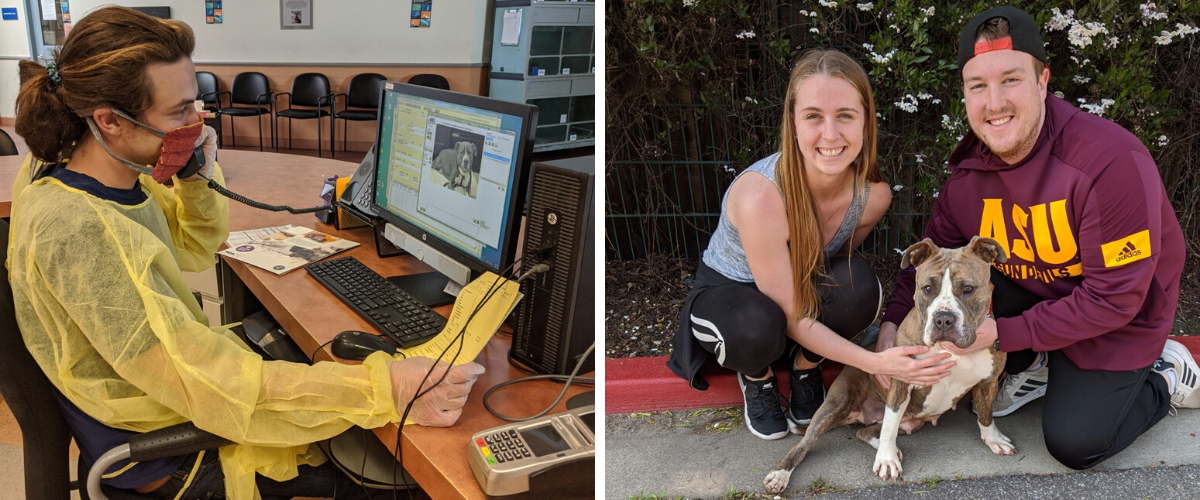
San Jose Animal Care Center, south of Sacramento, quickly adapted their programs when COVID-19 began. They modified things to keep everyone safe and keep the live outcomes moving. They started virtual adoptions, worked with rescue options, and proactively encouraged Return To Owners (RTO). This allowed them to reduce onsite capacity to below 20% full, an incredible accomplishment for an organization that takes in an estimated 18,000 animals each year. Since the shutdown began, they’ve been able to get their shelter down to 28 animals onsite at one point. San Jose Animal Care Center even started their first ever foster program the day their county went into shutdown to get their community involved in saving more lives. Lorance Gomez, the Shelter Operations Manager, attended the American Pets Alive! Conference as well as the Maddie's® Systematic Canine Lifesaving Leadership Master Class, and has really implemented what he’s been able to learn to save more lives in his community.
Kristen Hassen-Auerbach has been a leading voice in guiding shelters through the potential for change nationwide that the disruption caused by this pandemic has created space for. In Tucson, animal services are changing rapidly and PACC has been the guiding factor. Their community is embracing a new model that connects human social services and animal services in an attempt to focus on keeping pets with people and out of the shelter.
San Marcos Animal Services emptied their shelter during COVID-19 and they have been working hard to provide their community with resources so that pets don’t have to come to them in the future either. San Marcos Animal Services is looking beyond getting animals out the door. They are wanting to help them stay out. They have pushed themselves to improve and what they’re doing now is a huge leap forward. We’re so proud!
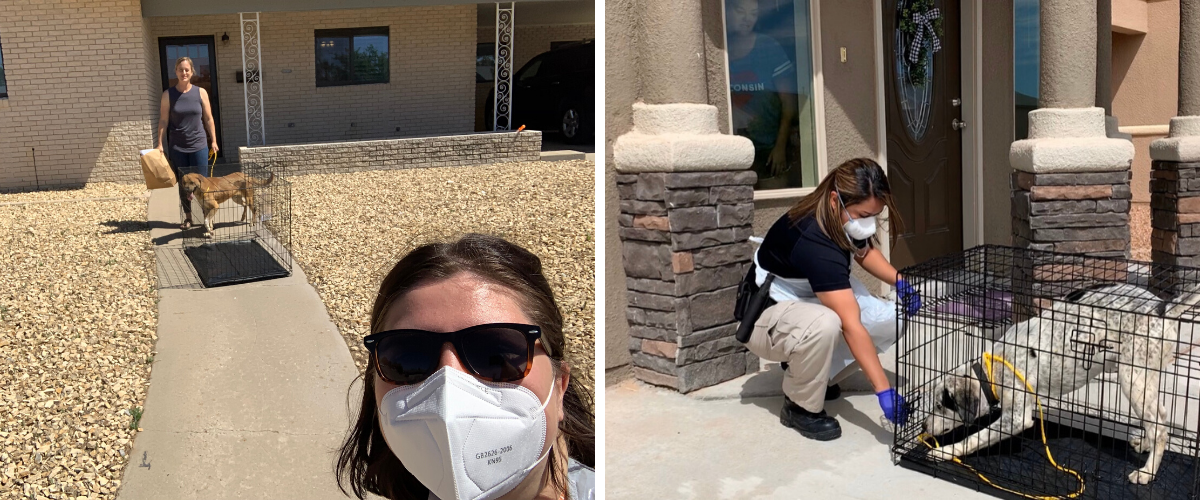
City of El Paso Animal Services, another high intake shelter along the Mexico border, worked very quickly to get their shelter population into foster care when COVID-19 began. They have been getting creative by shifting their staff to help support the foster team, delivering animals to foster homes, and setting up foster teams based on geographical areas to help support fosters in those areas. These teams include an APO, vet techs, and foster staff that help ensure fosters have the supplies and medical care needed for the animals. They’re also helping fosters get animals adopted so they don't have to come back to the shelter. The El Paso behavior team has provided direct lines for fosters to call for questions to provide further support. At this point, 80% of the City of El Paso Animal Services population is in foster homes!
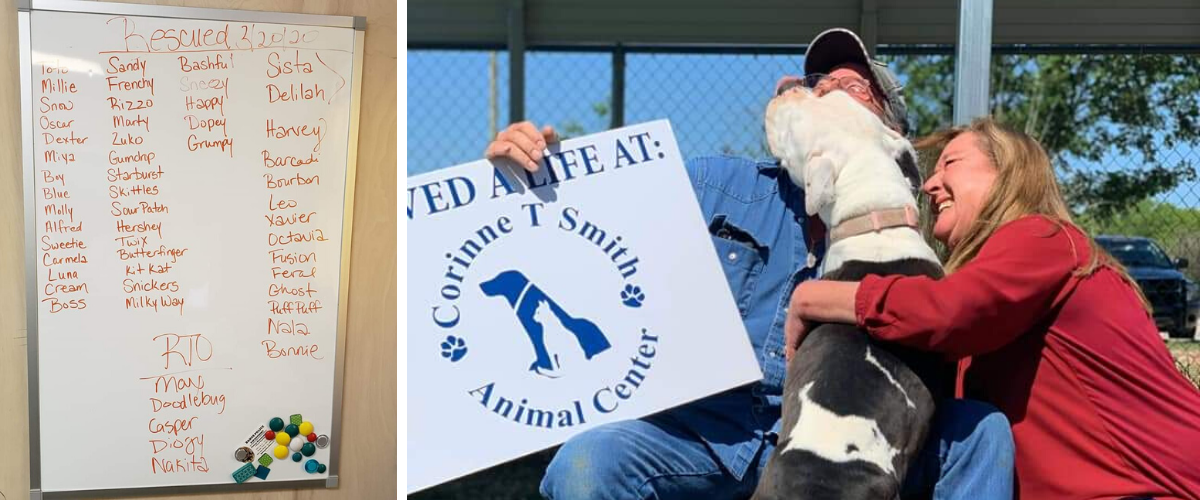
As soon as the COVID-19 virus arrived in Brownwood, Corinne T. Smith Animal Center closed to all non-emergency intakes at the shelter. They began begging their community for fosters and placing as many animals in foster homes as possible. Corinne T. Smith Animal Center also began to seek more rescue partnerships and moved all of their cats out of the shelter. They’ve successfully reduced their on-site dog population by more than 50% through rescue, foster, and adoption.
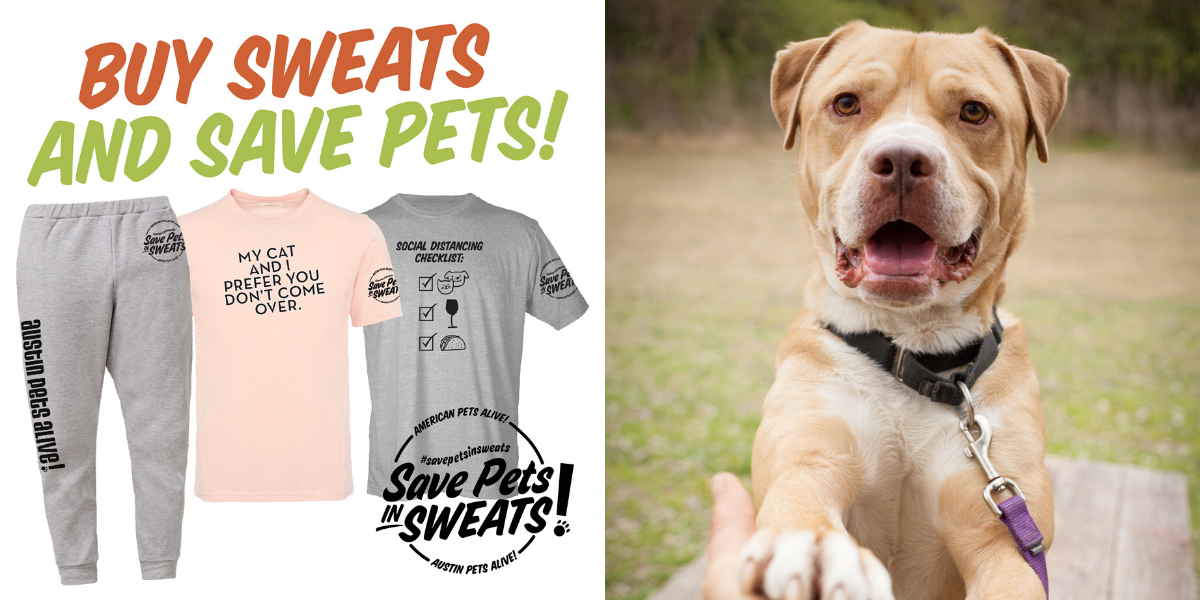
Austin Pets Alive!, our parent shelter, led by executive director, Dr. Ellen Jefferson, has been leading the charge across the country when it comes to lifesaving during COVID-19. The APA! and AmPA! Team wrote and created the protocols outlined in the AmPA! COVID-19 Preparedness Guide, which over 45 shelters are following They were fast to respond and quickly implemented programs like Dog n’ Dash, virtual meet and greets, and even changed the direction of their fundraising events to feature things like virtual yoga and concerts (and don’t forget the Save Pets in Sweats merch co-branded with AmPA!). APA!’s adoptions have also increased significantly during this time, with a 127% increase for cat adoptions compared to the same week last year and 102% for dogs.
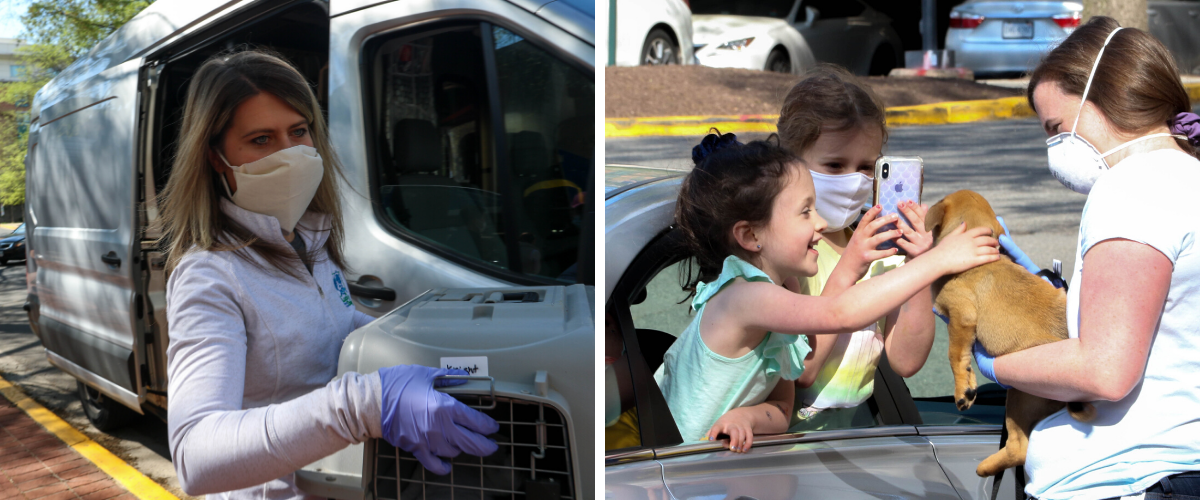
Lucky Dog Animal Rescue, located in northern Virginia, has significantly increased their adoptions and rescue intakes during COVID-19 under the leadership of Mirah A. Horowitz. They have been able to do the same number of adoptions and rescue transport intakes that they used to do in a month, in just a single week! Lucky Dog Rescue is adapting quickly, hosting virtual adoption events for dogs in foster care and even stepping up to rescue several dogs and cats at under-resourced shelters during this time.
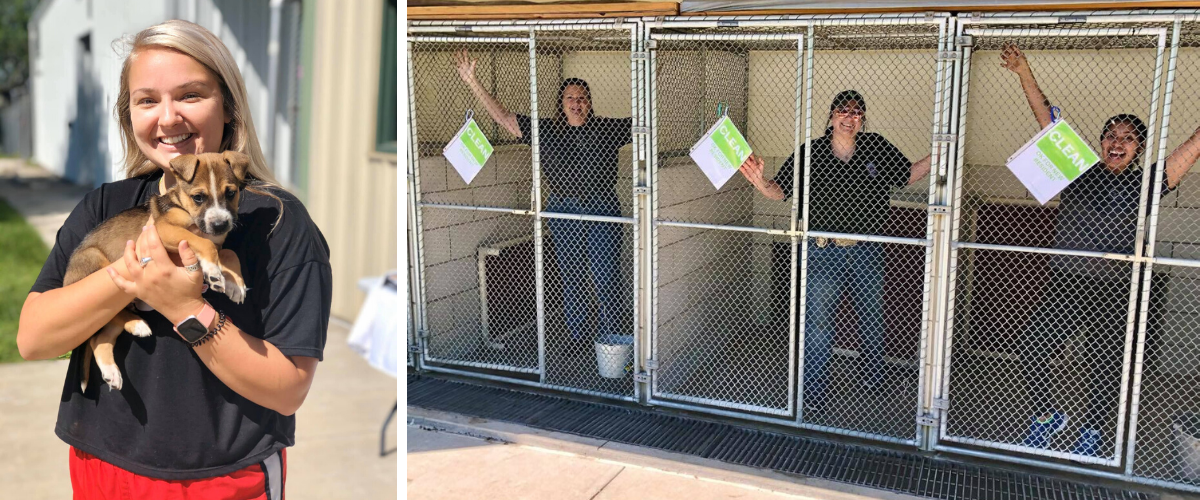
Rosenberg Animal Control and Shelter has done amazing things under the leadership of director, Mara Hartsell. During the COVID-19 pandemic, they have decreased their intake per NACA guidelines and started virtual adoptions. They were able to empty their shelter at the start of COVID and have increased adoption numbers while still limiting intake. Rosenberg Animal Control and Shelter’s foster program has exploded, increasing foster homes by nearly 80%. They actually don’t have enough pets to adopt out right now, an incredible problem to have. Rosenberg has been very transparent with their community, another important part of their success. We can’t wait to see what they do next!
Concho Valley PAWS has done some great work during COVID-19. They are hosting weekly virtual adoption events and finding underwriters to sponsor adoption fees, resulting in their adoptions holding steady. Their foster program has increased with over 50 cats sent to foster homes. Concho Valley PAWS has also introduced a new trial adoption of 72 hours, sort of a ‘try before you buy’ model. Concho Valley PAWS has continued to work closely with the City of San Angelo Animal Shelter, which has helped them to save lives and continue operating at a high level during COVID-19.
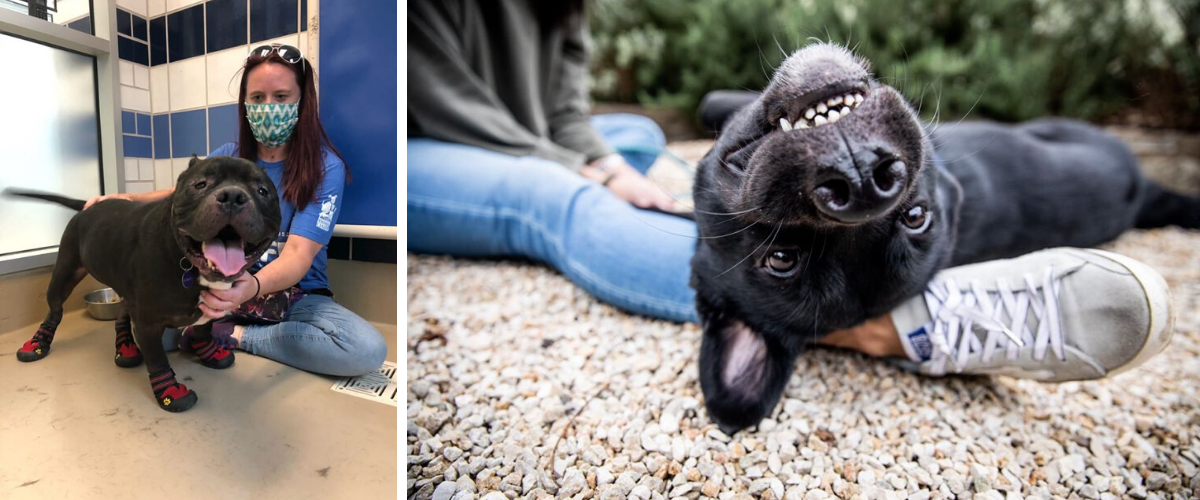
When the COVID-19 pandemic began, Austin Animal Center immediately began following NACA guidelines to only take in emergency cases. They worked to reunite animals by going through their finders instead of having the dog returned to the shelter, and maintained proper social distancing for animals that did need to come in. AAC was able to push over 60% of their population into foster homes, even though their foster program hasn’t been heavily relied upon in the past. They are also now allowing adoptions straight from foster homes and offering virtual adoptions. Austin Animal Center has also continued to work with Austin Pets Alive! and lost and found groups to continue to improve animal lifesaving efforts in the city during, and after, COVID-19.
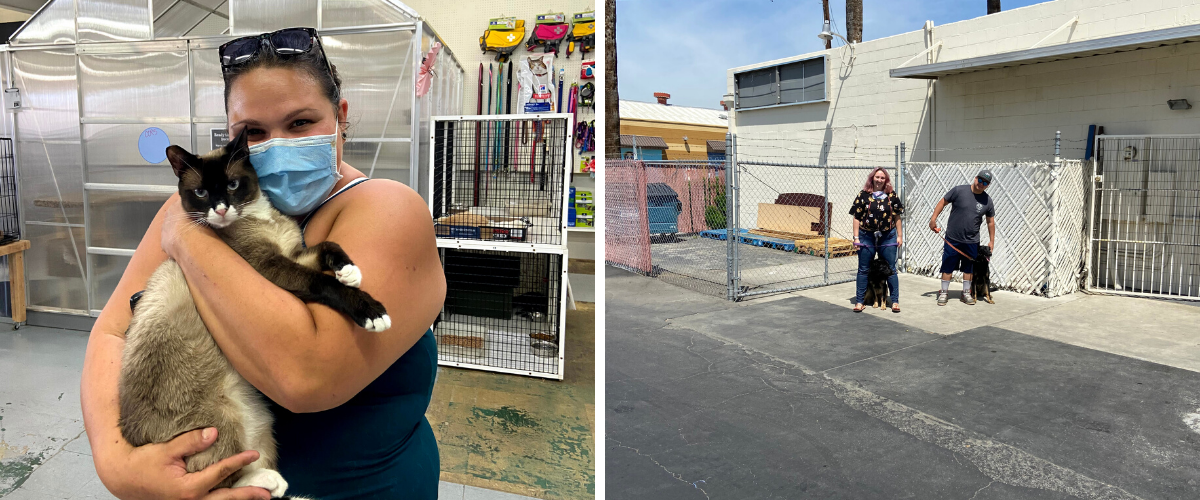
ARE Animal Rescue, located in southern California, cleared their entire shelter of ~200 animals when the COVID-19 pandemic started. They have also moved to appointment only adoptions to keep their staff safe and have been able to provide support to other local shelters because they’ve been able to reduce their onsite population so successfully. ARE Animal Rescue has implemented AmPA! Protocols like how to do meet and greets during COVID-19, and has even managed to increase their adoption numbers by 293% during this time. Great job ARE Animal Rescue!
LifeLine Animal Project in Atlanta, Georgia jumped into action when the pandemic began to sweep the nation. LifeLine got tons of communication out about needing fosters and adopters and their community responded. They’ve now got more fosters and adopters than they have animals in their care. They can hardly keep up with the demand for people wanting shelter pets. Their social media is also very responsive, telling stories as they happen. This shelter was able to get a few sponsorships to cover the cost of adoptions and they hosted an adorable live stream event called a virtual kitten shower!
Adapting during COVID-19 is so important to continuing lifesaving efforts. These shelters are thinking on their feet and truly embracing these changes with excitement.There are a lot more shelters that are doing an incredible job and we want to know about them! Shoot us an email at [email protected] with your nominations and maybe you’ll see them on our social media soon!